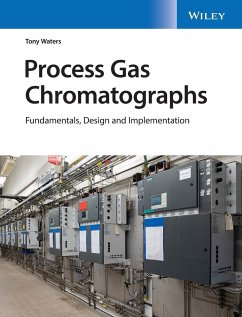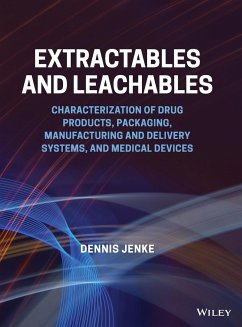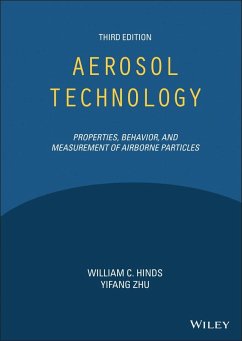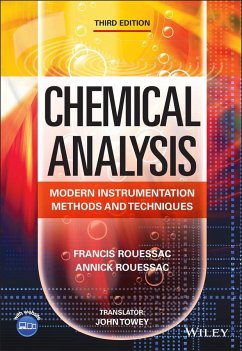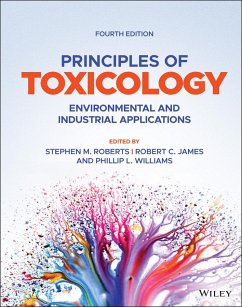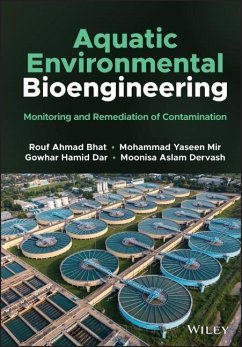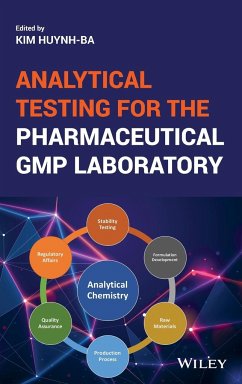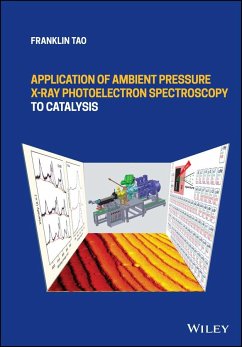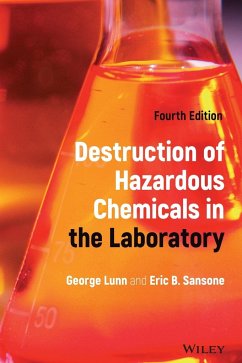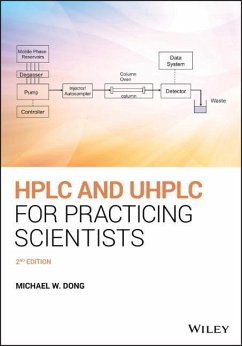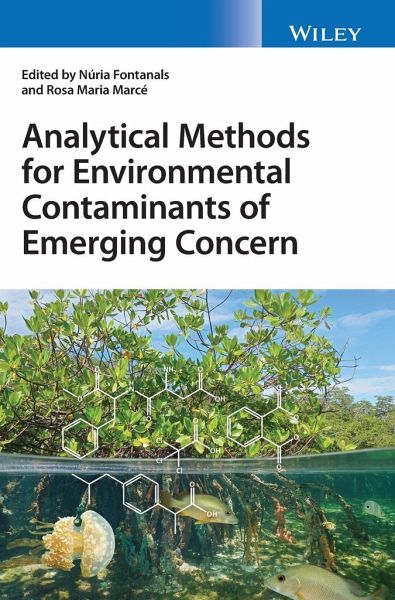
Analytical Methods for Environmental Contaminants of Emerging Concern
Versandkostenfrei!
Versandfertig in über 4 Wochen
129,99 €
inkl. MwSt.
Weitere Ausgaben:

PAYBACK Punkte
65 °P sammeln!
Analytical Methods for Environmental Contaminants of Emerging ConcernProvides the analytical methodology required to detect different families of organic compounds of emerging concern (CECs) from environmental samplesMost contaminants of emerging concern (CECs) --such as pharmaceuticals, personal care products, pesticides, sunscreens, perfluorinated compounds, and microplastics--have been present in the environment for years, yet some have only recently been identified, and many of these organic compounds remain unregulated. Analytical methods have been developed to determine the toxicity and ...
Analytical Methods for Environmental Contaminants of Emerging Concern
Provides the analytical methodology required to detect different families of organic compounds of emerging concern (CECs) from environmental samples
Most contaminants of emerging concern (CECs) --such as pharmaceuticals, personal care products, pesticides, sunscreens, perfluorinated compounds, and microplastics--have been present in the environment for years, yet some have only recently been identified, and many of these organic compounds remain unregulated. Analytical methods have been developed to determine the toxicity and risk of different families of CECs.
Analytical Methods for Environmental Contaminants of Emerging Concern presents the methods currently available to determine families of organic CECs in environmental samples. Each section of the book is devoted to a particular family of CECs, covering different analytical methods supported by examples of both cutting-edge researchand commonly used methods. An international panel of experts describes every step of the analytical procedures, including sample preparation, chromatographic separation coupled to mass spectrometry or other instrumental techniques. Specific requirements are linked to the properties of the contaminants and the sample matrix for each procedure presented. Throughout the book, in-depth case studies of analytical procedures for CEC extraction, separation, and determination are presented to help readers transfer the analytical methods to their laboratories.
_ Provides detailed descriptions of various approaches for determining each group of CECs in environmental samples
_ Covers different types of aqueous, solid, and atmospheric samples
_ Includes up-to-date information on CEC properties, relevant legislation, reported or potential metabolites/transformation products, and environmental occurrence
_ Addresses CECs such as novel psychoactive substances, artificial sweeteners,musk fragrances, disinfection byproducts, and microplastics
_ Offers practical tips and advice on special care procedures to assist readers in CEC determination
Analytical Methods for Environmental Contaminants of Emerging Concern is an essential reference and guide for advanced students and researchers in analytical chemistry and science, environmental science, forensic science, and specialized subjects related to analytical chemistry.
Provides the analytical methodology required to detect different families of organic compounds of emerging concern (CECs) from environmental samples
Most contaminants of emerging concern (CECs) --such as pharmaceuticals, personal care products, pesticides, sunscreens, perfluorinated compounds, and microplastics--have been present in the environment for years, yet some have only recently been identified, and many of these organic compounds remain unregulated. Analytical methods have been developed to determine the toxicity and risk of different families of CECs.
Analytical Methods for Environmental Contaminants of Emerging Concern presents the methods currently available to determine families of organic CECs in environmental samples. Each section of the book is devoted to a particular family of CECs, covering different analytical methods supported by examples of both cutting-edge researchand commonly used methods. An international panel of experts describes every step of the analytical procedures, including sample preparation, chromatographic separation coupled to mass spectrometry or other instrumental techniques. Specific requirements are linked to the properties of the contaminants and the sample matrix for each procedure presented. Throughout the book, in-depth case studies of analytical procedures for CEC extraction, separation, and determination are presented to help readers transfer the analytical methods to their laboratories.
_ Provides detailed descriptions of various approaches for determining each group of CECs in environmental samples
_ Covers different types of aqueous, solid, and atmospheric samples
_ Includes up-to-date information on CEC properties, relevant legislation, reported or potential metabolites/transformation products, and environmental occurrence
_ Addresses CECs such as novel psychoactive substances, artificial sweeteners,musk fragrances, disinfection byproducts, and microplastics
_ Offers practical tips and advice on special care procedures to assist readers in CEC determination
Analytical Methods for Environmental Contaminants of Emerging Concern is an essential reference and guide for advanced students and researchers in analytical chemistry and science, environmental science, forensic science, and specialized subjects related to analytical chemistry.





